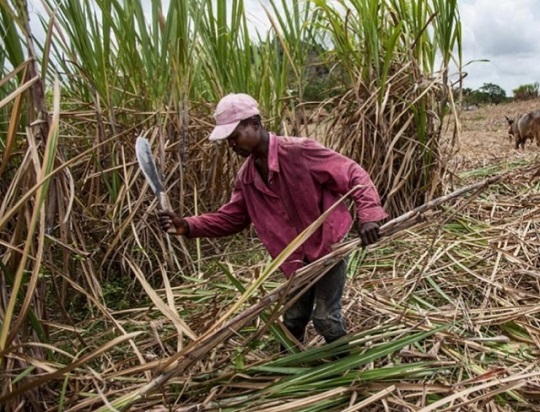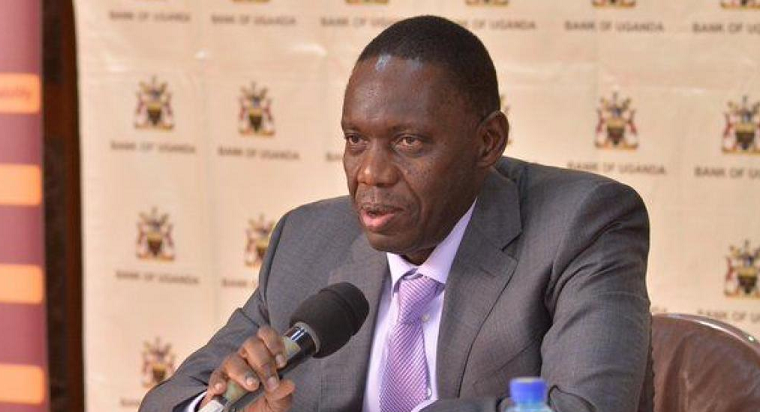Farmers in some parts of Uganda are abandoning sugarcane growing
Sugarcane growers in Uganda are divided on the approach to realizing the best earnings from their sweat, with some calling for the institution of the Sugar Board.
This comes as the cost of sugar continues to rise, now going for between 5,000 and 6,000 Shillings a kilogram, up from 3,800 six months ago. On bulk purchase, a 50-kilogram bag went up from 150,000 Shillings to 217,000 Shillings, leaving retailers with no option but to hike the cost to the consumer.
There is consensus among the cane growers and sugar companies, that the high prices are a result of the scarcity of cane with the demand for the raw material rising faster than the supply.
In the Greater Mukono and Busoga region, the scarcity of cane started as early as 2018, when there was high cane output and prices plummeted with the farmers having a smaller window to sell the product.
With a metric tonne of cane going for as low as 50,000, growers in Busoga started selling cane as firewood and others cleared their plantations to grow other crops.
Several farmers have cleared plantations for other crops such as mango and coffee tree growing. Others have abandoned the sugarcane plantations since millers buy them at significantly low prices.
Julius Katerevu, a member of Mukono Sugarcane Out Growers Co-Operative Society Limited says there is a need to set up a policy determining sugarcane prices or amend the Sugar Act to determine prices.
He notes that buyers are at liberty to set whichever prices they want but there is a need for the government to come up with a minimum figure that will help farmers to recoup their investment.
The Chairperson of Kayunga Sugarcane Out-Growers Cooperative, Edward Mutebi says millers gain much more from various sugarcane products such as molasses and bagasse.
“Millers exploit farmers since they reserve rights to set the prices and at the same time participate in the growing of cane. They have established big plantations which they give attention to during the time of harvest,” Mutebi says.
After the growers’ frustration made them abandon cane growing, the ensuing scarcity is now taking a toll on sugar production. There has also been an increase in cane prices recently to around 140,000 Shillings in the central and east of the country.
In Bunyoro, the situation is slightly different with a cane going for as high as 190,000 especially when selling to newer companies, like Bwendero Sugar and Kyenjojo Sugar. According to them, Luwero Sugar Factory owned by Victoria Sugar Ltd pays 180,000 Shillings when it moves the cane itself.
Kinyara Sugar Works Ltd and its sister companies Hoima Sugar, and Kiryandongo Sugar are buying a tonne at 140,000 Shillings. Here, the farmers have sustained production as the prices have remained fairly stable, unlike their counterparts in the East who are abandoning the trade, according to Kelvin Kaliisa, the Finance and Administration Manager, Bunyoro Sugarcane Growers Cooperative Union.
However, he says that the big companies are denying them the right to own the cane they have grown and do as they wish. They claim that, for example, Kinyara claims rights over all the cane grown in Bunyoro even when the grower has no contract with the company.
Kaliisa says the company claims that all the seed cane used in planting comes from Kinyara, one thing that cannot be proved.
But despite the waves in the sugar industry, key players are divided on the relevance of the Sugar Act with some doubting where it will work especially if there is no Sugar Board to operationalize it. The act was enacted and assented to by the president in 2021, majorly to provide for the development, regulation and promotion of the sugar industry, to benefit cane growers, manufacturers and consumers of sugar.
The act does not set the minimum price but sets a formula which can guide the millers while setting the prices.
The weight of the sugarcane supplied is multiplied by the amount of sugar produced from every 100 tons of cane.
This is then multiplied by a percentage which is negotiated by the two parties but is not less than 50 per cent.
Katerevu says that a mechanism helping to set the minimum price of cane would go a long way in answering the concerns of the growers because that is where all problems stem, but this would require amending the freshly made Sugar Act.
On his part, Kaliisa, also a cane grower in Masindi has no hope in the Act, because, according to him, the sugar manufacturers are capable of influencing any decision in the industry, so the Act will not be easy to implement.
Kinyara Sugar explains that their current price of 140,000 shillings a ton is very competitive compared to what other buyers are offering, because of the prior input.
“Kinyara offers extension services like fire-fighting during the dry season, harvesting and transportation services, pest control and provision of seed cane to all the registered farmers. Although some of the services like field development, land tillage and bush clearing are optional, the company usually recovers its loan for the services extended to farmers from their proceeds,” says Caroline Amongin, the Corporate Communication Manager.
She says that for this, contract farmers who sell cane outside Kinyara, therefore, put the company at a loss because it has not recovered the input cost. She also dismisses the allegations by the farmers that the company continues to enforce the contract even when one has withdrawn from it and that it claims all the cane in Masindi belongs to Kinyara, as false.
“Kinyara Sugar deals with farmers that have a binding contract to supply cane to the company. Any cane that is in the registered fields, therefore, belongs to Kinyara. The contract becomes obsolete when either party chooses to terminate it.”
The three larger companies; Kinyara, Kakira Sugar Works and the Sugar Corporation of Uganda Ltd (SCOUL) were pushing for the zoning of factories, which would see a company enjoy a 25-kilometre radius monopoly of cane growers.
The Act gives the Sugar Board powers to determine the suitability and requirements of sugar or jaggery factories.
“Twelve months after the commencement of this Act, the Board shall inspect all sugar millers and jaggery mills existing immediately before the commencement of this Act. Where after an inspection under section 2, the Board determines that a sugar mill or jaggery mill complies with this Act, the Board shall issue that sugar mill or jaggery mill the relevant license under this Act,” it states.
However, before the board is established, this cannot be done, hence the reason the manufacturers are calling for the Act to be fully implemented to see the establishment of the Board.
The Commissioner for Industry at the Ministry of Trade, Industry and Cooperatives, Denis Ainebyoona, says the delay to institute the Sugar Act is mainly because of the cost implications, especially on the remuneration of the executive.
According to him, one of the proposed amendments is to have a Board whose executive is not would not be full-time salaried, and also expand its mandate beyond the regulation of millers and farmers.
The Uganda Sugar Manufacturers Association proposes that all sugarcane growers be registered to so as to regulate the trade better.
This, according to him would ensure that there is just enough supply of cane relative to the demand by the millers. He says that because of too many growers, the millers were being suffocated by too much cane and this led to the collapse of cane prices three years ago.
-URN





